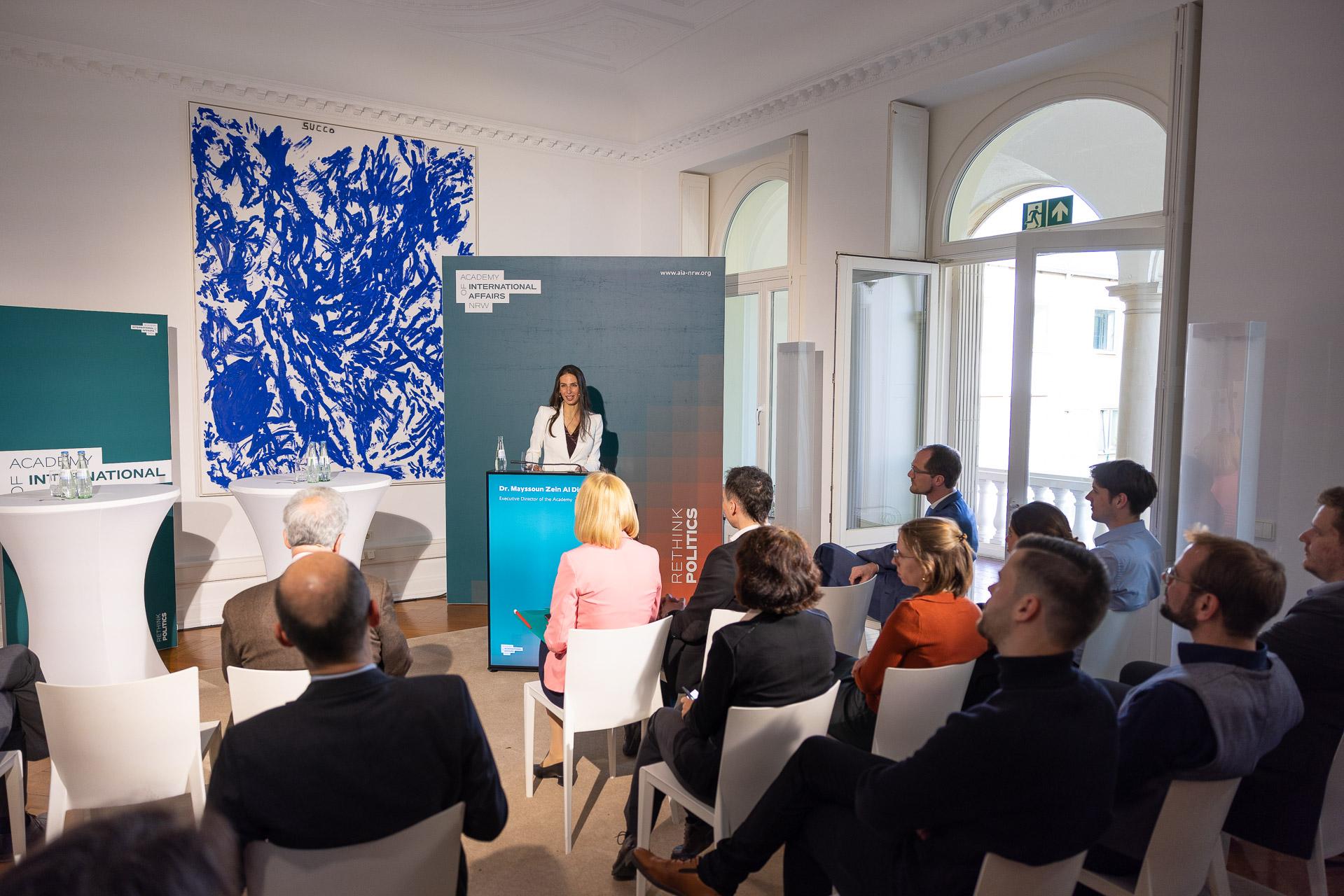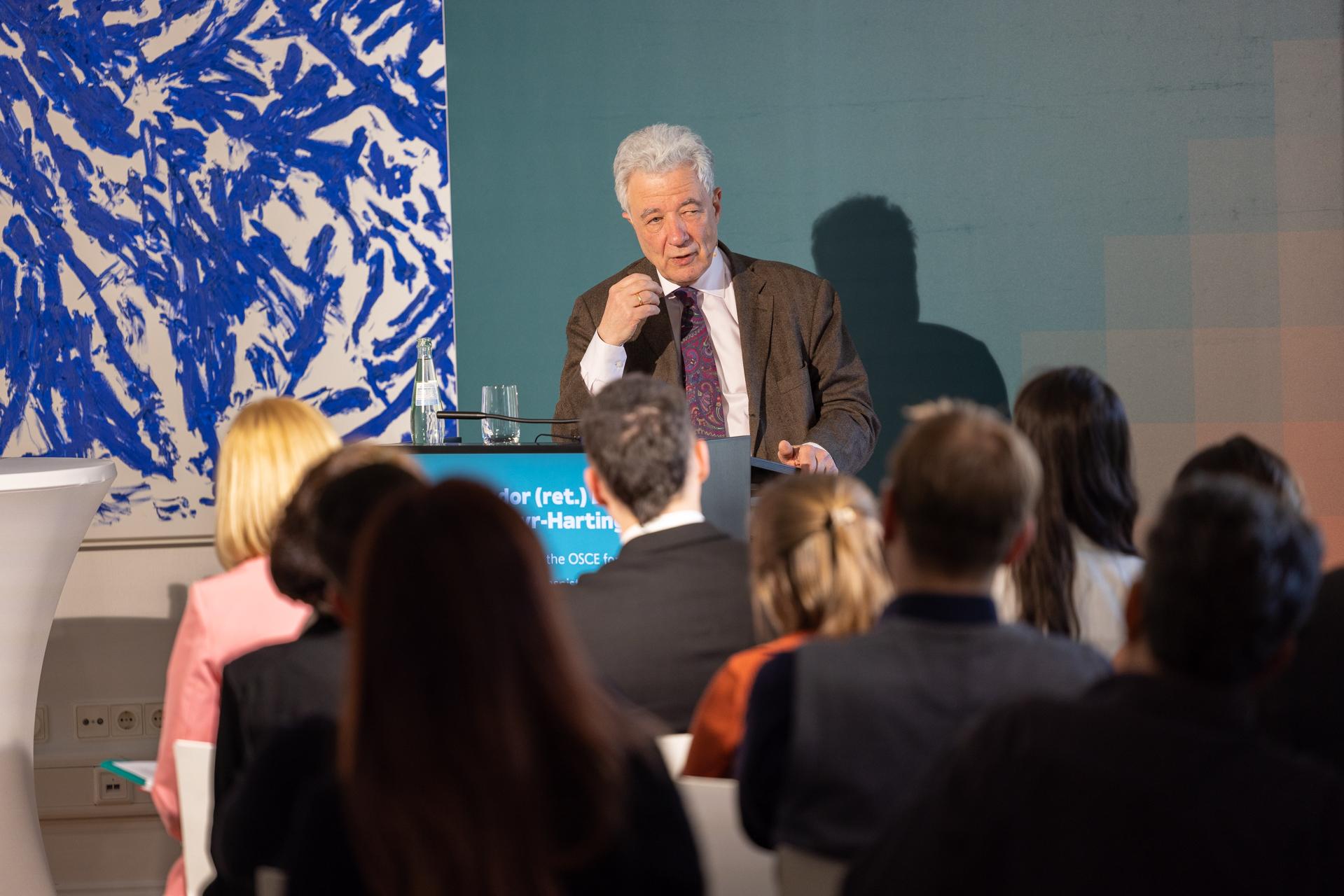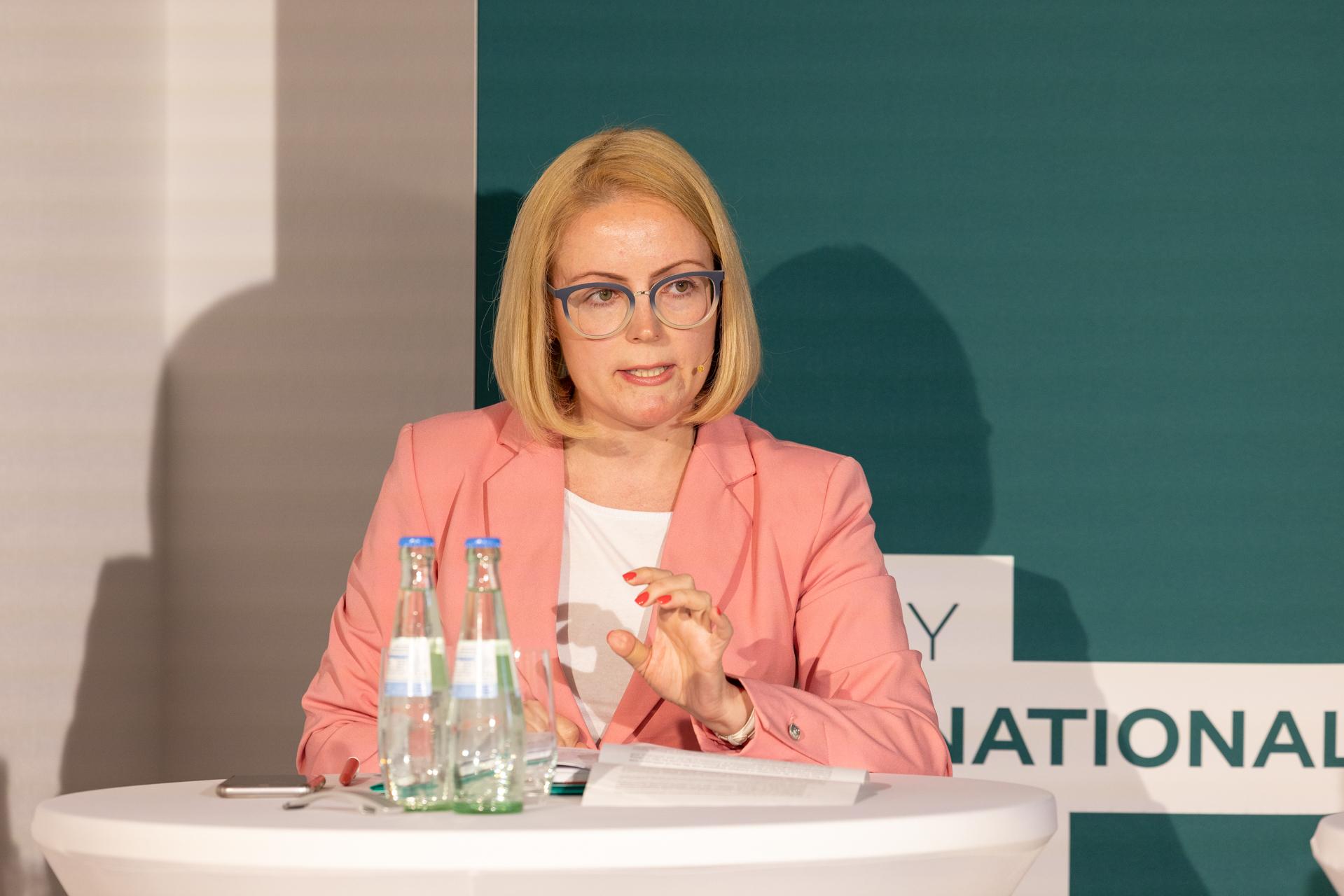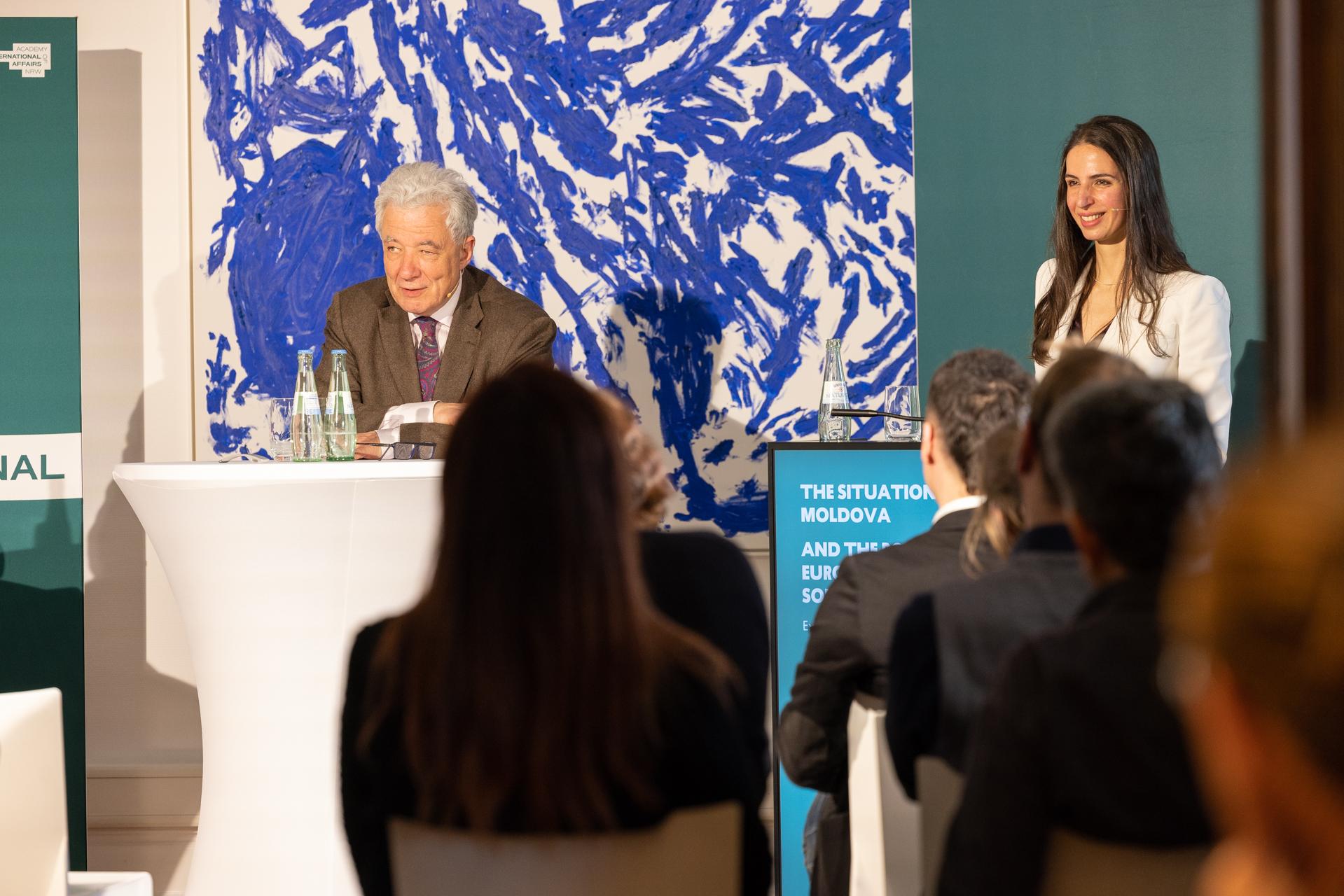Expert Panel with Discussion
The Academy of International Affairs NRW (AIA NRW) organized an expert discussion with Inna Șupac (Fellow at the AIA NRW) and Thomas Mayr-Harting (Austrian Ambassador and Special Representative of the OSCE for the Settlement of the Transnistrian Conflict) on the current situation of the Republic of Moldova and the role of the European Union in South-Eastern Europe on the fourth of May 2023.
The Executive Director of the Academy Dr. Zein Al Din welcomed the numerous guests and emphasized in her welcoming speech that the Republic of Moldova – probably more than any other country – is increasingly caught in the conflict lines between Russia, Ukraine and the West. With several attacks in the Transnistrian capital in the spring of 2022, the conflict flared up again and must be further considered in a larger context. For instance, fears are increasingly spreading that the Ukraine war could spill over into Moldova and other states. The European community stands firmly by Moldova’s side. Hence, it is a strong signal to Moscow to hold the second summit of the newly founded European Political Community in Moldova on June 1 of this year. Nevertheless, there can be no European security guarantees in the face of the current situation.
First, the event focused on the historical background of the Republic of Moldova and the Transnistrian conflict. The special role of energy policy with the profound economic as well as social interdependencies between the Republic of Moldova, its Transnistrian region and the European Union are also of outstanding importance in the context of the conflict. In particular, Transnistria’s de facto structures (with relatively autonomous oligarchic elites and interests) go far beyond Russian structures, despite close ties. Thus, the sometimes over-simplified (yet popular) classification of involved actors in Moldovan society into homogeneous pro-European forces and pro-Russian forces fails to fully reflect Moldova’s independent history. Nevertheless, the unresolved conflict definitely entails a European dimension and thus has implications for Moldova’s EU accession process, which it threatens to damage. Especially in this light, the extraordinary complexity of the conflict becomes apparent.
Furthermore, the outbreak of the Ukrainian war has again drawn international attention to Moldova and the Transnistrian conflict. In general, the European Union plays a key role in Moldova’s security, not least through its substantial financial support (especially from the German government), which contributes to the country’s socioeconomic development. However, if social cohesion is not constituted in Moldovan society in the long term, this support will not be able to achieve its goals. In this sense, it is not Russian tanks and missiles that pose the greatest risk to Moldova’s security, but the lack of support for the European idea in society. In this regard, particularly two factors have a negative impact on European integration in Moldova: On the one hand, the association of European integration with the idea of unification with Romania. On the other hand, the association of European integration with NATO accession, which most Moldovans reject according to current opinion polls. In order to find a national consensus, it is therefore even more important to involve diverse actors from Moldova’s multinational and multicultural civil society in the further political process.
In conclusion, Dr. Zein Al Din emphasized that the geopolitical implications of the conflict should not be underestimated. She also thanked the speakers for their different perspectives, which provided an excellent overview of the multidimensionality of the situation. All in all, the event evening reflects the Academy’s ambition to bring together different perspectives on current conflicts in international politics.
Impressions
Programme
Welcome address
Dr. Mayssoun Zein Al Din – Executive Director of the Academy
Keynote speech
Ambassador (ret.) Dr. Thomas Mayr-Harting – Special Representative of the OSCE for the Settlement of the Transnistrian Conflict, former EU Ambassador to the UN, former Political Director at the Austrian Foreign Ministry
Impulse
Inna Șupac, Moldovan political expert and Fellow at the Academy of International Affairs NRW
Discussion




